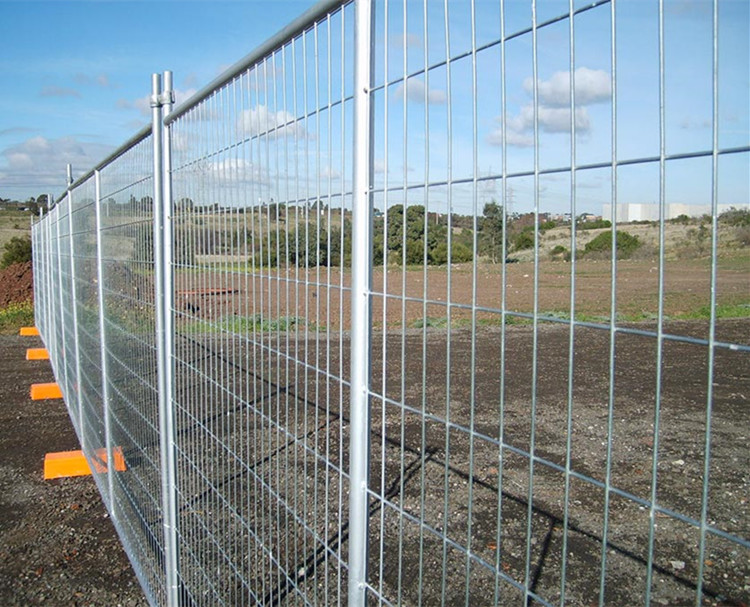Dec . 01, 2024 01:05 Back to list
Welded Mesh Price List and Market Trends for Construction Materials
Understanding Welded Mesh Pricelist A Comprehensive Overview
Welded mesh, a popular building material, is widely used in construction, agriculture, and industrial applications. Its versatility, strength, and durability make it a preferred choice for many projects. A crucial aspect for anyone considering welded mesh for their needs is understanding its pricing. This article delves into the factors affecting the welded mesh pricelist, helping potential buyers make informed decisions.
What is Welded Mesh?
Welded mesh is a grid-like product made from steel wires that are welded together at intersections, forming a strong and stable structure. Available in various sizes, gauges, and coatings, welded mesh serves multiple purposes, such as reinforcing concrete, creating animal enclosures, and providing safety barriers. The specifications of the welded mesh often dictate its cost, making it essential for buyers to evaluate their requirements carefully.
Factors Affecting the Price of Welded Mesh
1. Material Quality The type of steel used in the production of welded mesh significantly influences its price. Higher quality steel, which offers better corrosion resistance and greater tensile strength, tends to be more expensive. For example, stainless steel welded mesh will generally have a higher price point compared to galvanized steel.
2. Wire Diameter The gauge or diameter of the wire used in welded mesh also plays a critical role in determining cost. Thicker wires provide more strength and durability, making them suitable for heavy-duty applications, but they will be priced higher than thinner wires.
3. Mesh Size The dimensions of the mesh—such as spacing between the wires—impact pricing as well. A tighter mesh size typically requires more material and labor for manufacturing, which can increase costs.
welded mesh pricelist

4. Coating Options The presence of additional protective coatings, such as galvanization or PVC coating, is another factor influencing price. While coatings enhance the durability and lifespan of the welded mesh, they also add to the overall cost, depending on the coating process and material used.
5. Order Quantity Bulk purchases often lead to a reduction in price per unit. Suppliers usually offer discounts for larger orders, making it beneficial for contractors or businesses that require significant amounts of welded mesh.
6. Source and Supplier The supplier's reputation and location can greatly affect the price. Well-established suppliers might charge a premium for their products due to their reliability and service standards. Local suppliers may offer more competitive prices due to reduced shipping costs.
7. Market Trends and Seasonal Demand The economic climate and construction trends can also impact welded mesh pricing. During peak construction seasons or when demand outpaces supply, prices may rise.
Getting the Best Value
When considering a purchase, it's important to obtain multiple welded mesh pricelists from various suppliers. Comparing specifications and prices will help buyers find the best deal for their specific needs. Additionally, looking beyond the initial cost to evaluate the long-term value, including durability and manufacturing quality, helps ensure a wise investment.
Conclusion
A welded mesh pricelist is more than just numbers; it reflects a multitude of factors that determine the cost of this versatile material. By understanding these factors, buyers can make informed decisions that align with their project requirements and budget considerations. Whether for construction, agriculture, or industrial applications, being well-informed about welded mesh can lead to significant savings and satisfaction in the long run.
-
Hop Dipped Galvanized/PVC Coated Temporary Fence - Anping County Xingzhi Metal Wiremesh Products Co., Ltd.|Temporary Fencing Solutions, Durable Security Products
NewsJul.30,2025
-
Hop Dipped Galvanized/PVC Coated Temporary Fence-Anping Xingzhi|Durability&Cost-Effective
NewsJul.30,2025
-
Hop-Dipped Galvanized PVC Fence - Anping Xingzhi | Durable, Quick Deployment
NewsJul.30,2025
-
Hop Dipped Galvanized/PVC Coated Temporary Fence - Anping County Xingzhi|Temporary Fencing, Durable Security, Customization
NewsJul.30,2025
-
Hop Dipped Galvanized PVC Coated Temporary Fences - Anping County Xingzhi|Durable Corrosion Resistance, Quick Installation
NewsJul.30,2025
-
Hop Dipped Galvanized / PVC Coated Temporary Fence - Anping County Xingzhi Metal Wiremesh Products Co., Ltd|Durable Temporary Fencing&Versatile Applications
NewsJul.30,2025



